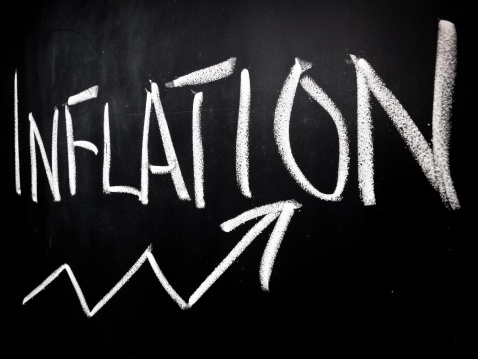Mastercard and the SMU Sim Kee Boon Institute for Financial Economics have jointly launched two indices, SinDEx1 and SinDEx 5, to measure inflationary expectations among households here. The developers hoped the Singapore Index of Inflation Expectations, to be updated quarterly, could be used to help policymakers forecast future inflation rates and formulate monetary policies accordingly. Till now, inflation forecasts released to the public are usually based on the predictions of professional economists. SMU President, Professor Arnoud De Meyer observed that inflation has been in the minds of many Singaporeans for the past one year and its movements affect how households, employers and central bankers make decisions. Hence, understanding how inflation expectation is formed and its impact on various economic decisions is instrumental in any discourse on economic policy.
SMU and Mastercard have launched an index measuring inflation expectations among households here. The developers hope the Singapore Index of Inflation Expectations, to be updated quarterly, can be used to help policymakers forecast future inflation rates and formulate monetary policies accordingly. Until now, inflation forecasts released to the public have usually been based on the predictions of professional economists.
Mastercard and SMU have jointly launched a new index that measures inflation expectations among local households. The hope is that this index, which will be updated quarterly, can be used to help policy-makers forecast future inflation and formulate monetary policies accordingly.
SMU President, Professor Arnoud De Meyer said, "For the past one year, inflation has been in the minds of many Singaporeans. Its movements affect how households, employers and central bankers make decisions. Understanding how inflation expectation is formed and its impact on various economic decisions is thus instrumental in any discourse on economic policy.”

The Business Times
SMU President, Professor Arnoud De Meyer said, "Understanding how inflation expectation is formed and its impact on various economic decisions is thus instrumental in any discourse on economic policy."
A new Index highlighting the spectrum of factors that impact the inflation expectations was jointly launched by MasterCard and Singapore Management University. SMU President, Professor Arnoud De Meyer said, “For the past one year, inflation has been in the minds of many Singaporeans. Its movements affect how households, employers and central bankers make decisions. Understanding how inflation expectations is formed and its impact on various economic decisions is thus instrumental in any discourse on economic policy.”
SMU President, Professor Arnoud De Meyer said, "Understanding how inflation expectation is formed and its impact on various economic decisions is thus instrumental in any discourse on economic policy."
Mastercard and the SMU Sim Kee Boon Institute for Financial Economics have jointly launched two indices, SinDEx1 and SinDEx 5, to measure inflationary expectations among households here. The developers hoped the Singapore Index of Inflation Expectations, to be updated quarterly, could be used to help policymakers forecast future inflation rates and formulate monetary policies accordingly. Till now, inflation forecasts released to the public are usually based on the predictions of professional economists. SMU President, Professor Arnoud De Meyer observed that inflation has been in the minds of many Singaporeans for the past one year and its movements affect how households, employers and central bankers make decisions. Hence, understanding how inflation expectation is formed and its impact on various economic decisions is instrumental in any discourse on economic policy.
The stock market's rise of over 5 per cent so far this year has once again led investors to talk about the so-called Capricorn effect, otherwise known as the January effect, which claims that stocks tend to rise in the month of January. Dr Benedict Koh, Professor of Finance at SMU said that the January effect was not present from 1988 to last year and found the market to have fallen in January for 13 of the 24 years investigated. He said that as more investors became aware of the Capricorn effect, they tried to profit from this anomaly by buying stocks in December and selling them at the end of January. And as more investors jumped onto the bandwagon, their actions caused the Capricorn effect to peter out over the years. Given the lack of evidence of the January effect in the last 24 years, the rise in the Straits Times Index in the first few days of January was due primarily to positive economic news coming out of the US and China.
SUBSCRIBE TO THE SKBI MAILING LIST*
Get updates on SKBI news and forthcoming events.
*Please note that upon providing your consent to receive marketing communications from SMU SKBI, you may withdraw your consent, at any point in time, by sending your request to skbi_enquiries [at] smu.edu.sg (subject: Withdrawal%20consent%20to%20receive%20marketing%20communications%20from%20SMU) . Upon receipt of your withdrawal request, you will cease receiving any marketing communications from SMU SKBI, within 30 (thirty) days of such a request.